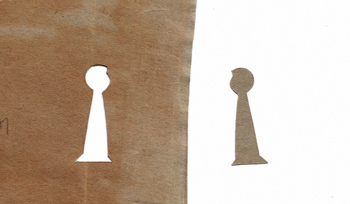Submitted by lratledge on
International juvenile justice standards are now well established: countless conventions, treaties, international and regional standards set out the rights of children in conflict with the law. However, few of these standards have filtered through to Palestinian law and fewer still have entered practice at the local level. This is a problem for all children in conflict with the law, but the effects are particularly harmful for refugee children.
All Palestinian children face the problems of living under occupation, but what distinguishes refugee children from non-refugee children is the environment in which they reside, the permanent and unexpected threats to the stability of their lives and the lack of services they often face. Refugees live in overpopulated areas, experience greater poverty, face increased levels of unemployment and enjoy a lower standard of living than their peers. These problems have been exacerbated by the reduction in services provided by the United Nations Relief and Works Agency for Palestine Refugees in the Near East (UNRWA) in conjunction with the lack of services provided by the Palestinian Authority. Refugee children are vulnerable already and this vulnerability can be compounded by a juvenile justice system that does not recognise and address their needs.
Despite the large quantity of research on children’s rights and juvenile justice, the particular problems facing refugee children and the violations of their rights in the criminal justice system have so far been neglected. This study aims to address this lack of information and, with this in mind, sets out to meet four objectives:
-
Identify the specific needs of refugee children in conflict with the law to legal, psychological and social assistance. This report will assess these needs in light of the current Palestinian criminal justice system and international standards. Shoruq will use the study to inform their priorities in working with children in conflict with the law.
-
Analyse the Palestinian criminal justice system from a children’s rights perspective. The report will particularly address issues of legal assistance, legal aid, confidentiality, detention and due process rights. The report will also address the performance of staff working within the juvenile justice sector in working with refugee children.
-
Assess the social, economic and educational conditions faced by children in conflict with the law in the refugee camps of Bethlehem. In order to understand the unique vulnerability of refugee children in conflict with the law, the report will address the particular challenges that they face in everyday life using the refugee camps of Bethlehem as a case study. The report recognises that the legal system cannot be addressed in isolation and that any meaningful approach to juvenile justice must also address the social, educational and psychological needs of children.
-
Increase awareness and interest in the experience of refugee children in conflict with the law. The report hopes to trigger interest in the plight of refugee children in conflict with the law to promote work that will support their needs.
This study is the first of its kind in the Occupied Palestinian Territories (OPT) and will focus on the Bethlehem Governorate as a case study. To avoid rehashing old research, the report avoids those areas of the criminal justice system that are already well documented. The way that Israeli military law is applied to children, and the rights violations this involves, are well researched and so are excluded from this report.
This report is also published at crucial point in the incorporation of international human rights standards into Palestinian law. On 2 April 2014, Palestine formally acceded to six of the UN’s core human rights treaties, including the Convention on the Rights of the Child. This commitment to the rights of Palestinians provides an opportunity to reform Palestinian law to properly protect the rights of children.
This study is a starting point, but it is hoped that it will lead to follow-up research on the development of laws, policies and programmes needed for refugee children in conflict with the law across the whole of the Occupied Palestinian Territories.

